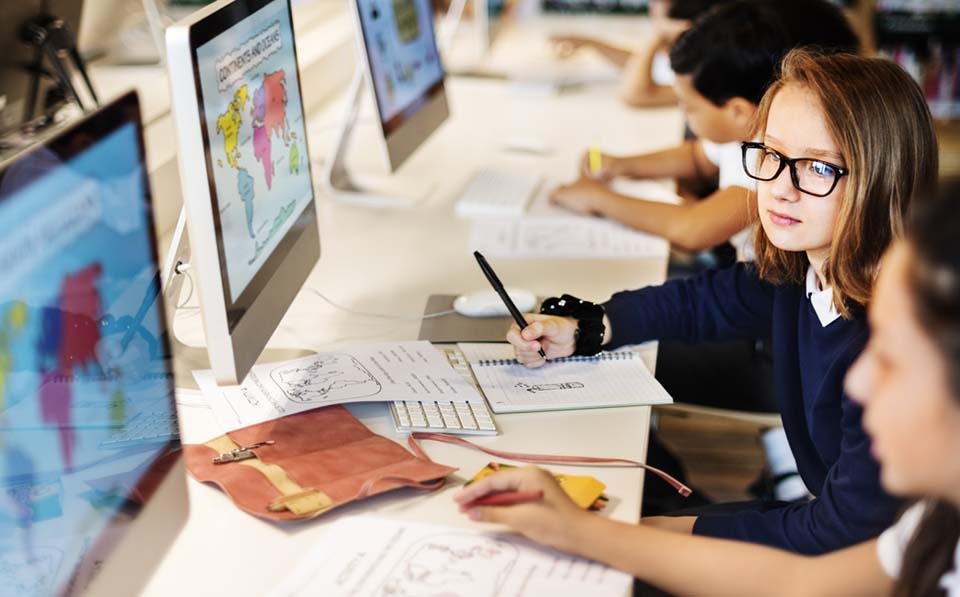How Online Classes Impacted the Mental Health and Routine of Kids

COVID-19 has made kids globally sit at their homes and getting their studies done online. Restricting students from attending schools physically may keep them at bay with the COVID-19 virus to a great extent. Lesser contact in-person leads to a lesser spread of the virus. Online education is highly flexible, easily accessible, and cost-effective than attending schools physically and gaining it. Students can attend their classes regularly through online mediums. Where online education has given immense benefits during this crucial time, it has imposed several health hazards as well.
Now, take a glance at the impact of online classes on the mental health and routine of kids.
- Need for time management
Though online classes are highly flexible, you need to be disciplined in order to meet the deadlines for tests, assignments, projects, etc. So, kids (and their parents) need to do the proper time management and need to have the required organization skills as well. If not done properly, kids get traumatized and pressurized, eventually affecting their mental condition to a great extent. - Loaded with more work
It has been observed that online classes leave the students with more load of work than the traditional face-to-face classes. It overburdens them for no good reasons. More projects, more homework, and more assignments- everything compiled together leads to poor ‘overburdened’ kids. This disturbs their whole routine and affects adversely their mental health too. - Lesser social interaction
Online learning is more of a ‘one-way dialogue delivery’ where not all students feel like interacting with their counterparts and teachers. Such interaction is highly essential for the proper understanding of concepts. A lack of social interaction adversely affects the mental and physical growth of kids whereas building such a relationship online requires more effort. Additionally, online learning also leads to a lesser development of good communication skills among the kids. - Enhanced stress and anxiety
As aforementioned, online schooling lacks social interaction that may create a sense of isolation and remoteness among students. This may feed them with arrogance, stress, and anxiety instead of love, companionship, and cooperation. All these factors hamper their mental state to a great extent. Moreover, kids need to be active learners in order to gain the maximum out of it, and in case, they don’t turn out to be the same, they become irritable too that gradually becomes their behavior. - Mental fatigue
Our brain is accustomed to processing the information in a certain way but if the information is not given accordingly, the brain drains quicker as it needs to work harder to process the received information. Eventually, teachers, as well as students, get exhausted easily and quickly during continuous online learning sessions. - More screen-time
Online classes lead to higher screen time, thereby affecting the eyes and brain of kids. If kids need to take online classes, then screen time is inevitable. Apart from rendering physical strain to eyes and body, higher screen time also makes the kids sleep-deprived, weakens their emotional judgment, slows down their learning ability, and impairs their socializing skills too. Online classes on a regular basis impact badly the daily routine and mental health of kids. - Lesser physical activity
Lockdown and online schooling have forced the kids to reduce their physical activity to the maximum extent possible. On-campus learning does give frequent breaks after every class but back-to-back online classes leave no room for students to take a stroll. Hence, prolonged screen time makes the kids lesser physically active gradually leading to obesity and chronic health conditions.
Bring the best of the CEOWORLD magazine's global journalism to audiences in the United States and around the world. - Add CEOWORLD magazine to your Google News feed.
Follow CEOWORLD magazine headlines on: Google News, LinkedIn, Twitter, and Facebook.
Copyright 2025 The CEOWORLD magazine. All rights reserved. This material (and any extract from it) must not be copied, redistributed or placed on any website, without CEOWORLD magazine' prior written consent. For media queries, please contact: info@ceoworld.biz








